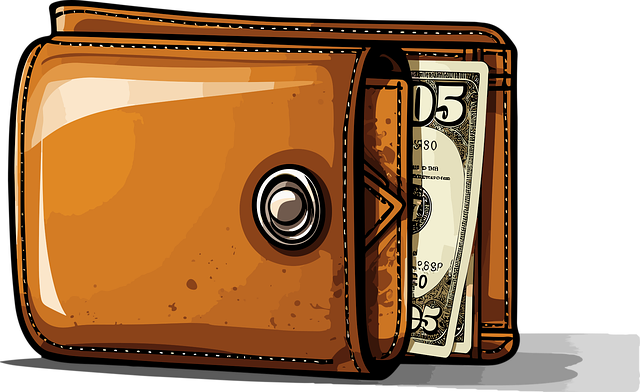The Ultimate Guide to Crypto Wallets in 2023
Author: Jameson Richman Expert
Published On: 2025-03-12
Prepared by Jameson Richman and our team of experts with over a decade of experience in cryptocurrency and digital asset analysis. Learn more about us.
The world of cryptocurrency is rapidly evolving, and understanding crypto wallets is crucial for anyone looking to dive into this digital asset space. A crypto wallet serves as a secure tool for storing, sending, and receiving cryptocurrencies. With various types of wallets available, ranging from hardware to software solutions, this comprehensive guide will explore everything you need to know about crypto wallets in 2023. We will cover the different types, how to choose the right one, security features, and the latest trends in the crypto wallet market.

Understanding Crypto Wallets
At its core, a crypto wallet is a digital tool that allows users to manage their cryptocurrencies. Unlike traditional wallets that hold physical currency, crypto wallets store your private and public keys. These keys enable you to access your cryptocurrency on the blockchain. There are two main types of crypto wallets: hot wallets and cold wallets.
Hot Wallets
Hot wallets are online wallets that are connected to the internet, making them convenient for daily transactions. They are ideal for users who trade frequently or need quick access to their funds. Examples of hot wallets include:
- Web Wallets: Accessible through browsers, these wallets are easy to use but can be vulnerable to attacks.
- Mobile Wallets: Apps installed on smartphones, offering convenience and ease of use.
- Desktop Wallets: Software downloaded to a computer, providing more security than web wallets.
Cold Wallets
Cold wallets, on the other hand, are not connected to the internet, making them more secure against hacking attempts. They are suitable for long-term storage of cryptocurrencies. Key types of cold wallets include:
- Hardware Wallets: Physical devices that store your keys offline, providing high security.
- Paper Wallets: Physical printouts of your keys and QR codes, which can be stored securely.
Choosing the Right Crypto Wallet
When selecting a crypto wallet, consider the following factors:
- Security: Look for wallets with strong encryption and backup features.
- User Experience: Choose a wallet with a user-friendly interface.
- Supported Cryptocurrencies: Ensure the wallet supports the cryptocurrencies you plan to store.
- Control over Private Keys: Opt for wallets that allow you to hold your private keys.
Popular Crypto Wallets in 2023
As the demand for crypto wallets increases, several platforms have gained popularity. Here are some of the top choices for crypto wallets in 2023:
1. Binance Wallet
Binance offers a secure wallet option for its users. With features such as two-factor authentication and regular security updates, Binance Wallet is a reliable choice. You can sign up for Binance using this referral link.
2. MEXC Wallet
MEXC provides users with a simple interface and supports a wide range of cryptocurrencies. The wallet is integrated with the MEXC exchange, allowing for seamless trading. You can register for MEXC using this referral link.
3. Bitget Wallet
Bitget is another popular option, especially for trading derivatives. The wallet supports various cryptocurrencies and offers competitive fees. Use this referral link to create your Bitget account.
4. Bybit Wallet
Bybit is well-known for its derivatives trading platform, and its wallet complements this service by providing a secure storage solution. Sign up for Bybit using this referral link.

Security Features to Consider
Security is paramount when dealing with cryptocurrencies. Here are some essential security features to look for in a crypto wallet:
- Two-Factor Authentication (2FA): Adds an extra layer of security by requiring a second form of verification.
- Backup Options: Ensure you can back up your wallet to recover your funds if needed.
- Multi-Signature Support: Requires multiple signatures for transactions, enhancing security.
- Regular Updates: Wallets that frequently update their software are more likely to be secure.
Trends in Crypto Wallets for 2023
The crypto wallet landscape is continuously changing, with emerging trends shaping how users interact with their digital assets. Some notable trends in 2023 include:
1. Integration with Decentralized Finance (DeFi)
As DeFi continues to grow, many crypto wallets are integrating with DeFi protocols, allowing users to lend, borrow, and earn interest on their assets directly from their wallets.
2. Enhanced User Experience
Wallet developers are focusing on creating more intuitive interfaces to cater to both novice and experienced users, making it easier to manage cryptocurrencies.
3. Cross-Chain Compatibility
With the rise of multiple blockchain ecosystems, wallets that support cross-chain transactions are becoming more popular, allowing users to manage assets across different platforms seamlessly.
Conclusion
Understanding crypto wallets is essential for anyone interested in the world of cryptocurrencies. By choosing the right wallet and prioritizing security, you'll be better equipped to manage your digital assets effectively. Whether you opt for a hot wallet for convenience or a cold wallet for enhanced security, the key is to stay informed and make choices that align with your investment strategy. As you navigate this exciting landscape, remember to utilize the recommended wallets mentioned in this guide to ensure a secure and efficient experience.
For more information on cryptocurrency and wallets, consider exploring resources from reputable sites like CoinDesk and CoinTelegraph.